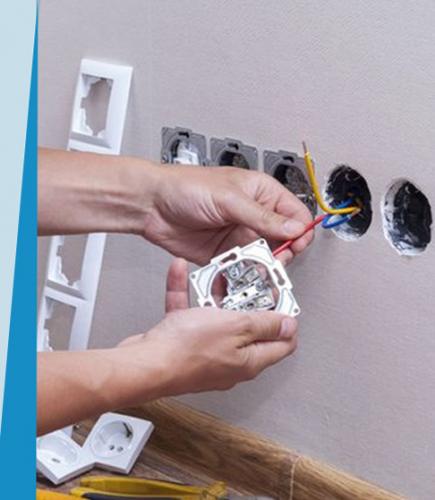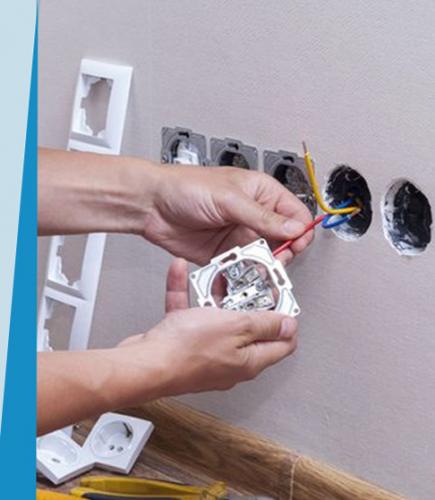Exploring Licensed Electrician Jobs: Your Path to a Bright Career

In the dynamic
world of electrical services, licensed
electrician jobs stand out as prestigious and rewarding career
opportunities. Whether you're a seasoned professional or aspiring to join the
ranks of skilled electricians, understanding the significance of being a
licensed electrician and the abundant career prospects it offers is essential.
In this blog, we'll delve into the world of licensed electrician jobs,
discussing the importance of licensure, qualifications, and where to find these
opportunities.
The
Importance of Licensing
Licensed
electricians are at the heart of electrical safety and quality workmanship.
Their training and expertise ensure that electrical systems are installed,
repaired, and maintained to meet strict safety standards. Here's why licensure
matters:
1. Safety: Licensed
electricians have the knowledge and skills to perform electrical work safely,
reducing the risk of electrical hazards, fires, and accidents.
2. Quality Assurance:
Licensure ensures that electricians adhere to industry standards and codes,
resulting in high-quality electrical installations and repairs.
3. Compliance: Many states
and regions require electrical work to be performed by licensed professionals
to comply with legal and insurance requirements.
4. Customer Confidence:
Homeowners and businesses trust licensed electricians, knowing they have the
necessary qualifications to deliver reliable and safe electrical solutions.
Qualifications
for Licensed Electricians
Becoming a
licensed electrician is a rigorous process that involves the following steps:
1. Education: Complete a
formal education program in electrical engineering or enroll in an electrical
apprenticeship program. These programs provide the foundational knowledge and
hands-on experience required for licensure.
2. Apprenticeship: Under
the guidance of experienced electricians, aspiring professionals must complete
an apprenticeship program, typically lasting four years. This period involves
on-the-job training and classroom instruction.
3. Licensure Exam: Pass a
comprehensive licensure exam that assesses knowledge of electrical theory,
codes, and safety regulations. The specific requirements for licensure vary by
state or region.
4. Continuing Education:
To maintain their licensure, electricians often need to complete continuing
education courses to stay updated on industry advancements and safety
standards.
Exploring
Licensed Electrician Jobs
Licensed
electricians are in high demand across various sectors, including residential,
commercial, and industrial. Some of the key career opportunities for licensed
electricians include:
1. Residential Electricians: These professionals specialize in electrical systems for homes,
handling tasks such as wiring, lighting installations, and electrical repairs.
2. Commercial Electricians: Commercial electricians work on electrical systems in businesses
and public buildings, including wiring for offices, retail spaces, and
industrial facilities.
3. Industrial Electricians: These experts focus on complex electrical systems in factories and
industrial plants, ensuring machines and equipment run efficiently and safely.
4. Renewable Energy Specialists: With the growing emphasis on sustainability, licensed electricians
who specialize in renewable energy installation and maintenance, such as solar
panel systems, have a bright future.
To explore
licensed electrician job opportunities, you can contact Electrician Xchange
through their toll-free number at 1300 353 364 or email them at
info@electricianxchange.com. Additionally, you can visit their website at https://www.electricianxchange.com/
to access job listings and resources tailored for licensed electricians.
Conclusion






Comments